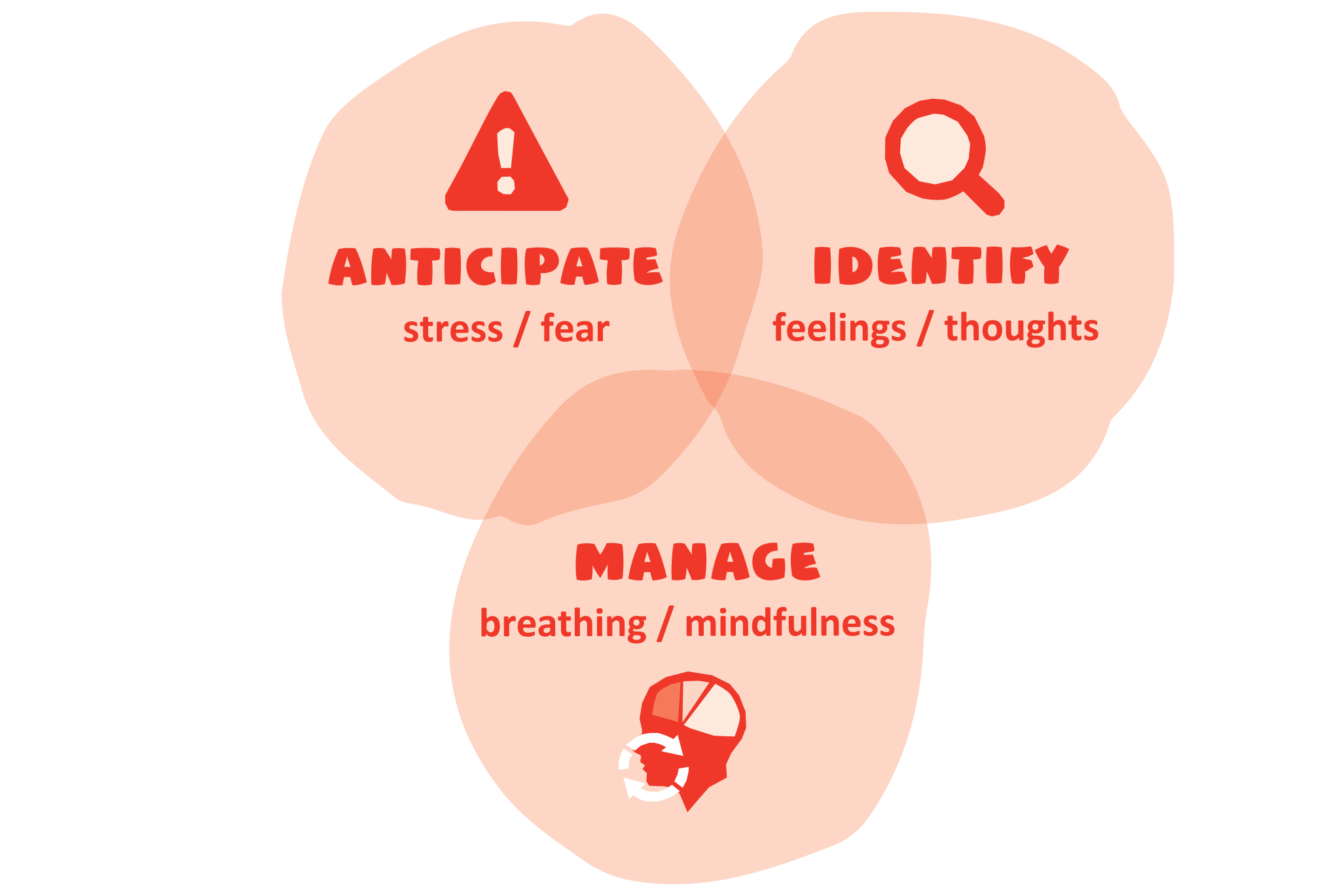

Emergencies are scary and stressful. And most people under a lot of stress don’t think as clearly as usual, affecting their decisions and reactions. This stress can also affect their recovery.
So, the first step to help you cope with your responses and those of others is prepare your mind. You may have been through emergencies before. Think about how you felt then. What would you do again?, What would you do differently? This is helpful to preparing your mind to remain calm, and make good decisions. We know from research that this leads to lower stress and fast recovery.
There are three simple actions to take to get your mind prepared for the stress of an emergency; to be able to anticipate, identify and manage beforehand how you and your family are likely to feel, think and respond in an emergency.
Here are some useful tips to help do just that.

Think about what things might happen during an emergency that will cause stress? Being separated from family? Not knowing what is going on? The sounds, smells or sights of what is happening? Write these down.
How do you think you will react to the stress? How do you usually react to highly stressful situations? Think about how you might feel during an emergency and what you and others might be thinking. Write these down.
Common feelings include anxiety, fear, general stress, uncertainty and feeling helpless.
Although these reactions are very natural, they may stop you from preparing or acting so it’s important to acknowledge them and manage them better when they happen.
How you feel in highly stressful situations is strongly affected by the way you cope with the physical signs of anxiety and the thoughts running through your head.
We experience anxiety in a variety of ways, including upset stomach, irritability, headaches, shortness of breath and tightness in the chest.
For children it might include anxious behaviour, such as excessive clinging.
Try to also identify any frightening and negative thoughts you might have. Do those thoughts help or hinder? Some typical, but unhelpful thoughts include things like: "I can’t do this", "I’m hopeless", "Why didn’t I ...?", "I don’t know what to do", "It can’t be that bad".
Use familiar techniques to help manage your feelings or try the following:
■ Practise calming techniques, such as deep, relaxed breathing or mindfulness (use a smart phone app such as Smiling Mind to help you get started)
■ Replace frightening thoughts with more helpful ones like: "Breathe calmly", "I can handle this", "I’m coping".
Try not to focus on the bad things that might happen, but instead tell yourself that the calmer you are, the better you’ll be at managing exactly what needs to be done.
■ Complete this worksheet to help prepare your mind and build wellbeing resilience.
■ Do practical preparedness measures. This will give you a sense of being in control and having acted. Follow our preparedness advice to help with this.
■ Here’s some further information from Phoenix Australia on preparing emotionally for disaster.

Think about what things might happen during an emergency that will cause stress. Is it being separated from family? Not knowing what is going on? The sounds, smells or sights of what is happening? Write these down.
How do you think you will react to the stress? How do you usually react to highly stressful situations? Think about how you might feel during an emergency and what you and others might be thinking. Write these down.
Common feelings include anxiety, fear, general stress, uncertainty and feeling helpless.
Although these reactions are very natural, they may stop you from preparing or acting, so it’s important to acknowledge them and manage them better when they happen.
How you feel in highly stressful situations is strongly affected by the way you cope with the physical signs of anxiety and the thoughts running through your head.
We experience anxiety in a variety of ways, including upset stomach, irritability, headaches, shortness of breath and tightness in the chest.
For children, it might include anxious behaviour, such as excessive clinging.
Try to also identify any frightening and negative thoughts you might have. Do those thoughts help or hinder? Some typical, but unhelpful thoughts include things like: "I can’t do this", "I’m hopeless", "Why didn’t I ...?", "I don’t know what to do", "It can’t be that bad".
Use familiar techniques to help manage your feelings or try the following:
Red Cross pays our respects to the Aboriginal and Torres Strait Islander custodians of the country where we work, and to Elders, past, present and emerging.
Learn about our Reconciliation Action Plan and how we can all make reconciliation real.
This website may contain the images, voices or names of people who have passed away.


© Australian Red Cross 2026. ABN 50 169 561 394
